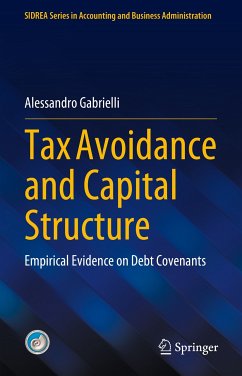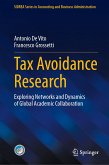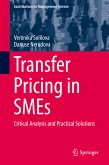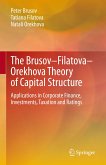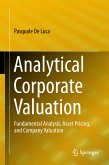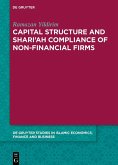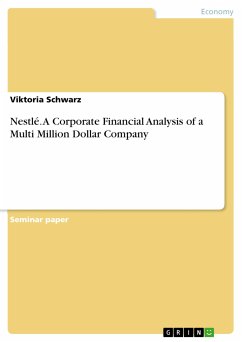This book provides a comprehensive overview of the implications of tax avoidance for a firm's capital structure, highlighting the key role played by free cash flow and agency conflicts. First, the book provides an outline of the theories and empirical evidence concerning the role of taxes in the Theory of Capital Structure. It reviews the studies investigating the relationship between agency conflicts and capital structure. The book explores the role of free cash flow and agency conflicts in the relationship between tax avoidance and capital structure. In the final section, the results of an empirical investigation conducted on a sample of U.S. public firms are also presented. The empirical research examines whether and how tax avoidance is associated with debt covenant violation across the stages of the corporate life cycle. Specifically, the research uses the concept of the corporate life cycle stage to analyse whether and how the association between tax avoidance and debt covenant violation varies in different agency settings. Consistent with the hypotheses drawn on the Agency Theory, the findings of the empirical research suggest life cycle stages moderate the association between tax avoidance and debt covenant violation.
Overall, this book sheds light on the potential implications of tax avoidance activities for a firm's capital structure. The book will be of interest to both experienced and early-stage scholars interested in the topic. Moreover, the book will also be of interest to policymakers, investors, analysts, lenders, and other market participants.
Dieser Download kann aus rechtlichen Gründen nur mit Rechnungsadresse in A, B, BG, CY, CZ, D, DK, EW, E, FIN, F, GR, HR, H, IRL, I, LT, L, LR, M, NL, PL, P, R, S, SLO, SK ausgeliefert werden.

